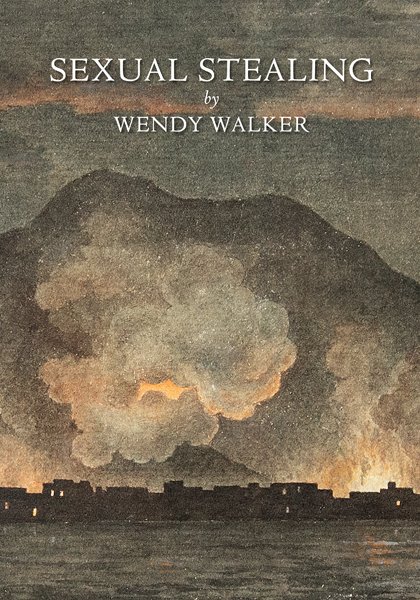“…join it as you would an insurgency.”
-Daniel Levin Becker, from his introduction
“A necessary necromancer, Wendy Walker summons ghosts from the gaps of the gothic. Sexual Stealing is built from shattered mysteries; it offers liberation via constraint, renders renewal via revision, and wields erasure as a weapon of the marginalized. It looks like poetry and dazzles like magic, but this is a book of reckoning. Page by page, line by line, and word by word it reconfigures the act of reading.”
-Matthew Cheney
Sexual Stealing investigates the origins of the Gothic novel in 18th-century Jamaica and Haiti with the eliciting of a hidden text from Ann Radcliffe’s The Mysteries of Udolpho. Purchase or find out more
Sexual Stealing.
Temporary Culture, 2021.
Ebook Edition (PDF Format) | $15
Order from WEIGHTLESS BOOKS.
Paperback Edition | $50
Order from Levellers Press.
Limited Edition | $200
Order from Temporary Culture
Excerpts
Introduction by Daniel Levin Becker
Conjunctions / Read Dangerously
Around 1993 my love for the work of Poe led me to delve into the history of the Gothic Novel. My curiosity was immediately aroused by a fact that scholars seemed to ignore, namely that two of the first Gothic authors, Matthew Lewis and William Beckford, were major slave-owners with sugar plantations in Jamaica. Another fact, also ignored, seemed to me more than coincidental: Lewis and Beckford, as well as Horace Walpole, the eldest of the group, were all gay and/or bisexual at a time when sodomy in England was a capital offense.
I came to believe that “the terrorist novel” (as Gothic was then called) did not grow out of England’s revulsion at the French Revolution, combined with a fascination with German Romanticism, (the accepted academic thesis), but rather was an invention spurred by anxiety over the predicament in which each of the three male authors found themselves. All three men had enormous political privilege and great wealth, and were all-powerful with respect to the lives of the people they owned, but at the same time they were subject to hanging for the pursuit of their sexual desires. Since no mode of discourse existed in which to discuss this predicament, each was individually driven to invent one.
I in my turn have found it necessary to invent a new literary form in order to address how the Gothic continues to inform our own time. I found in Ann Radcliffe’s The Mysteries of Udolpho (1794) a submerged text that dramatically embodies much of what her husband William, a reporter, transcribed when sitting in on the parliamentary debates over the Maroon Wars in Jamaica and Toussaint’s revolution in Haiti.
